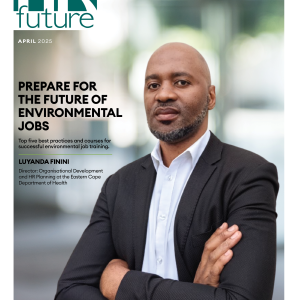Continuing revelations show that all is not as well as everyone thought it was in the private sector. This state of affairs presents a challenge for HR Professionals to rise to the occasion.
While each person who is found to have engaged in unethical actions needs to be held accountable, there is another matter that needs to be addressed. That is the culture of the company, which includes the ethical climate of the company and the moral identity of its leaders and employees.
If no steps are taken to address these, dishonesty, corruption, fraud and theft will continue unabated.
How can one address these?
1 Put a “moral stake” in the ground
Now is the time for HR Directors and HR Professionals to lead by example. When you operate on the basis of, “Do as I do,” instead of, “Do as I say,” you acquire a moral authority that gives you influence you would never thought possible.
The late former President Mandela was able to achieve what he did before and during his term as State President largely because of his moral authority. Such was his influence that even opposition politicians showed the greatest respect for him and happily complied with his wishes.
A more recent example of a person displaying moral leadership in South Africa is Pravin Gordhan. It was precisely because of the influence that he enjoyed that former President Zuma replaced him as Minister of Finance because he presented too much of a threat to Zuma’s power base.
If you want to start turning things around in your company’s culture, start setting the example. Don’t wait for the CEO or the FD to do something. Start with yourself. Once you step up to the plate, you’ll find that others will follow your lead.
2 Tell people what you expect from them
Don’t only “walk the talk”. You must also “talk the walk”. That means that you “tell” others that you expect them to conduct themselves in an exemplary manner. It doesn’t have to be in words or lectures but in the subtle ways you interact with them that you can send them very powerful messages. Give them a good reputation to live up to and they will bend over backwards to prove you right. When you tell people that you expect great things from them because you know that they have it inside them, it puts significant positive pressure on them. Alternatively, when you treat people in a way that suggests you expect the worst from them because that’s the type of people you think they are, again, they’ll work hard to prove you right.
Communicate what ethics and moral behaviour you expect in the company. When someone displays unethical behaviour, no matter how senior, take prompt and appropriate action that is appropriate to your authority – or make sure the appropriate person does. That’s another way of showing people what you expect from everybody. The “boys will be boys” approach which turns a blind eye to indiscretions must be avoided at all costs as it will cause you to lose credibility in a big way.
3 Be brave and courageous
The first two points require significant courage on your part. You may not think of yourself as brave or courageous. I’ve got good news for you! Most brave and courageous people don’t consider themselves to be or don’t feel like they are. BUT, they do brave and courageous things, and that is what reveals just how much courage they have.
It’s not the big talkers who are brave and courageous. It’s the people who take courageous action who are. It’s not what you say but what you do. So, even though you may not FEEL very brave, if you’re prepared to do the right thing at the right time, you’ll be respected for your courage.
Now, more than ever before, we need senior HR Professionals to show what they’re made of in order to turn their companies’ culture into an ethical moral culture that stops in its tracks the corruption that has been growing like an aggressive cancer.
Will you be one of these to answer the call to moral and ethical leadership?
Alan Hosking is the Publisher of HR Future magazine, www.hrfuture.net, @HRFuturemag. He is a recognised authority on leadership skills for the future and helps business leaders learn to lead with purpose and agility. He was named by US-based web site Disruptordaily.com as one of the “Top 25 Future of Work Influencers to Follow on Twitter”.












